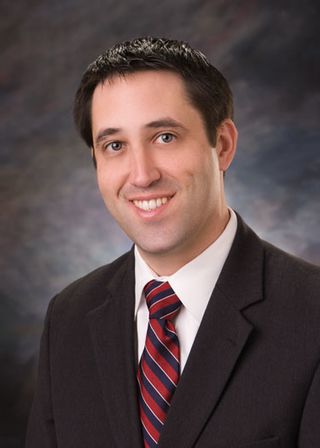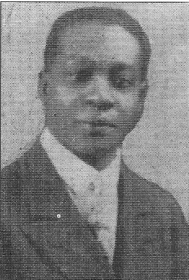Related Research Articles

The Republic of Texas was a sovereign state in North America that existed from March 2, 1836, to February 19, 1846, that bordered Mexico, the Republic of the Rio Grande in 1840, and the United States of America, although Mexico considered it a rebellious province during its entire existence despite the Treaties of Velasco of May 1836. It was bordered by Mexico to the west and southwest, the Gulf of Mexico to the southeast, the two U.S. states of Louisiana and Arkansas to the east and northeast, and United States territories encompassing parts of the current U.S. states of Oklahoma, Kansas, Colorado, Wyoming, and New Mexico to the north and west. The Anglo residents of the area and of the republic became known as Texians.
The Whig Party was a conservative political party that existed in the United States during the middle 19th century. Alongside the slightly larger Democratic Party, it was one of the two major parties in the United States between the late 1830s and the early 1850s as part of the Second Party System. Four presidents were affiliated with the Whig Party for at least part of their terms. Other prominent members of the Whig Party include Henry Clay, Daniel Webster, Rufus Choate, William Seward, John J. Crittenden, and John Quincy Adams. The Whig base of support was centered among entrepreneurs, professionals, planters, social reformers, devout Protestants, particularly evangelicals, and the emerging urban middle class. It had much less backing from poor farmers and unskilled workers.

The Democratic-Republican Party, known at the time as the Republican Party and also referred to as the Jeffersonian Republican Party among other names, was an American political party founded by Thomas Jefferson and James Madison in the early 1790s that championed republicanism, agrarianism, political equality, and expansionism. The party became increasingly dominant after the 1800 elections as the opposing Federalist Party collapsed. The Democratic-Republicans splintered during the 1824 presidential election. The majority faction of the Democratic-Republicans eventually coalesced into the modern Democratic Party, while the minority faction ultimately formed the core of what became the Whig Party.

John Cornyn III is an American politician and attorney serving as the senior United States senator from Texas, a seat he has held since 2002. A member of the Republican Party, he served as the Senate majority whip for the 114th and 115th Congresses, and previously served as chair of the National Republican Senatorial Committee from 2009 to 2013.

Robert Allan Shivers was an American politician who served as the 37th governor of Texas. Shivers was a leader of the Texas Democratic Party during the turbulent 1940s and 1950s and developed the lieutenant governor's post into an extremely powerful perch in the state government.

For about a hundred years, from after Reconstruction until the 1990s, the Democratic Party dominated Texas politics.

The Jaybird–Woodpecker War (1888–89) was a feud between two United States Democratic Party factions fighting for political control of Fort Bend County, Texas, in the southeast part of the state. The Jay Bird Democratic Association was an all-White political organization formed in 1887 by young men to challenge and regain control of the county government from the biracial coalition of former White and Black Republicans who had dominated the county Democratic party and county government since 1869. Murders and political assassinations were committed against persons in each faction in 1888 and 1889.

Paul Octave Hébert was the 14th Governor of Louisiana from 1853 to 1856 and a brigadier general in the Confederate States Army.

Sherman Miller Booth was an abolitionist, editor and politician in Wisconsin, and was instrumental in forming the Liberty Party, the Free Soil Party and the Republican Party. He became known nationally after helping instigate a jailbreak for a runaway slave in violation of the Fugitive Slave Act.
White primaries were primary elections held in the Southern United States in which only white voters were permitted to participate. Statewide white primaries were established by the state Democratic Party units or by state legislatures in South Carolina (1896), Florida (1902), Mississippi and Alabama, Texas (1905), Louisiana and Arkansas (1906), and Georgia (1900). Since winning the Democratic primary in the South almost always meant winning the general election, barring black and other minority voters meant they were in essence disenfranchised. Southern states also passed laws and constitutions with provisions to raise barriers to voter registration, completing disenfranchisement from 1890 to 1908 in all states of the former Confederacy.

Glenn Allen Hegar Jr. is an American attorney who serves as Texas Comptroller of Public Accounts. He was a Republican member of the Texas Senate representing the 18th District, west of Houston. He succeeded fellow Republican Susan Combs as comptroller on January 2, 2015. He was elected Comptroller in the general election on November 4, 2014.

Marion Price Daniel III was a United States politician from Texas who served as Speaker of the Texas House of Representatives from 1973 to 1975.
The Progressive Democratic Party was a political party in South Carolina in the 1940s. It was founded in 1944 by John Henry McCray, editor of the black newspaper The Lighthouse and Informer to galvanize blacks to register and vote. While it did not achieve electoral success, it did successfully get blacks to play an increasingly important role in South Carolina politics.
The civil rights movement (1865–1896) aimed to eliminate racial discrimination against African Americans, improve their educational and employment opportunities, and establish their electoral power, just after the abolition of slavery in the United States. The period from 1865 to 1895 saw a tremendous change in the fortunes of the black community following the elimination of slavery in the South.

The Cleveland Gazette was a weekly newspaper published in Cleveland, Ohio, from August 25, 1883, to May 20, 1945. It was an African-American newspaper owned and edited by Harry Clay Smith, initially with a group of partners. Circulation was estimated between 5,000 and 18,000.

William Madison McDonald, nicknamed "Gooseneck Bill", was an American politician, businessman, and banker of great influence in Texas during the late nineteenth century. Part of the Black and Tan faction, by 1892 he was elected to the Republican Party of Texas's state executive committee, as temporary chairman in 1896, and as permanent state chairman in 1898.
Thaddeus Thomson Hutcheson, was a Republican attorney in his native Houston, who was an early figure in the movement to establish a competitive two-party system in the U.S. state of Texas.

Carter Walker Wesley was an American lawyer, newspaperman and political activist.
Charles Norton Love was a pioneering newspaper publisher and civil rights activist in Houston, Texas. Love became a leading civil rights activist and advocate for the African American community. The Love's paper, the Texas Freeman criticized Jim Crow laws, sought equal pay for African American teachers, advocated for Houston's Carnegie Library for African Americans, pushed for the hiring of African American postal workers, and opposed segregation. He was active in the Republican Party and was a member of the Black-and-tan faction, then the lily white faction, and eventually sued to end the prohibition on African Americans voting in primaries held by the Democratic Party. He steadfastly sought out political representation and other opportunities for African Americans.
Christopher George Hollins is an American attorney and politician who served as interim Harris County Clerk from June 2020 to November 2020. He is known for overseeing the 2020 United States presidential election in Harris County; many of his policies received resistance from state Republican officials.
References
- ↑ Walker, Eyvaine (2011). Keeping a Family Legacy Alive: Unforgotten African Americans. Eyvaine Walker-Lindsey. ISBN 9781450760706.
- ↑ Cox, Patrick (2009-04-20). The First Texas News Barons. University of Texas Press. ISBN 9780292782426.
- ↑ Kleiner, Diana J. "Handbook of Texas: Houston Informer and Texas Freeman". Texas State Historical Association. Retrieved 9 February 2023.
- ↑ Govenar, Alan B. (2010). Lightnin' Hopkins: His Life and Blues. Chicago Review Press. ISBN 9781556529627.
- ↑ Wesley, Carter W. (1940). "Texans Seek Right to Vote". The Crisis: A Record of the Darker Races. 47 (10): 312. Retrieved 9 February 2023.
- ↑ "FindLaw's United States Supreme Court case and opinions". Findlaw.